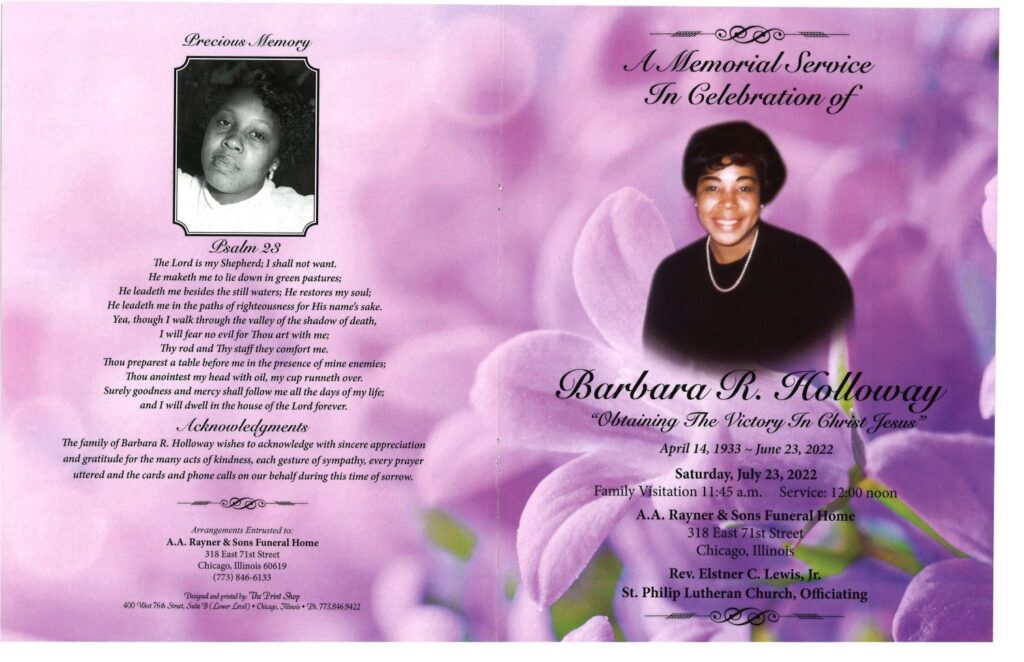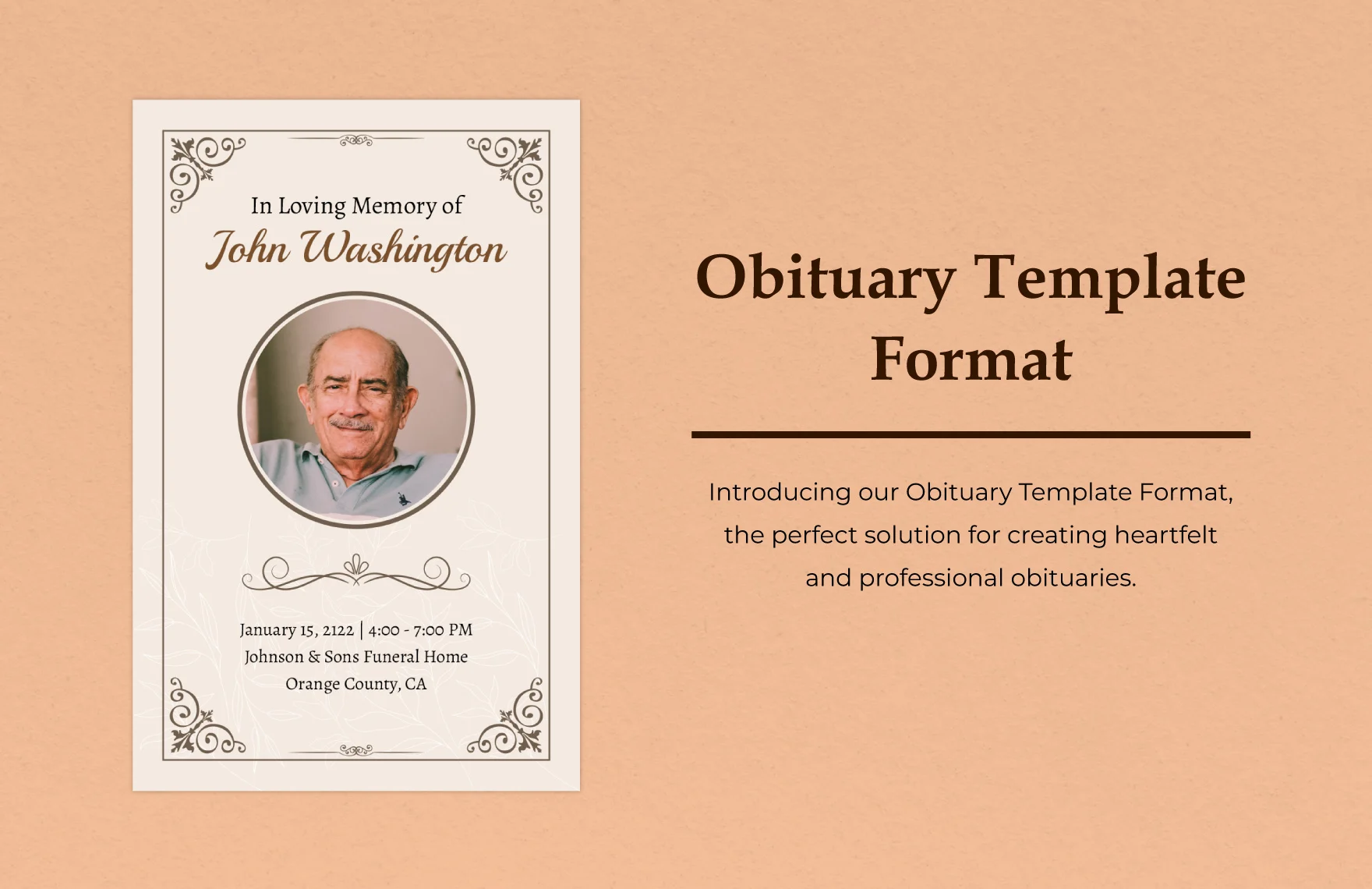Obituaries: Honoring Lives, Celebrating Legacies
In today’s fast-paced digital world, obituaries continue to hold a special place in our hearts. They serve as more than just announcements of death; they are lasting tributes that capture the essence of a person’s life, accomplishments, and the impact they left behind. Obituaries offer a chance to honor, remember, and celebrate, providing families and friends with a space to reflect on the lives of their loved ones. This article explores the role of obituaries in today’s society and how they connect people through shared memories.
What Are Obituaries?
 Obituaries are written announcements that provide information about a person’s passing, including details about their life, funeral arrangements, and any surviving family members. While traditional newspaper obituaries have long been a way to notify communities of a death, online obituaries have grown in prominence. These digital memorials offer more space for storytelling, photos, and tributes.
Obituaries are written announcements that provide information about a person’s passing, including details about their life, funeral arrangements, and any surviving family members. While traditional newspaper obituaries have long been a way to notify communities of a death, online obituaries have grown in prominence. These digital memorials offer more space for storytelling, photos, and tributes.
However, the role of obituaries goes beyond mere notification—they provide an opportunity to celebrate a life well-lived and offer comfort to those who are grieving. From sharing achievements to highlighting personality traits, these memorials create a meaningful narrative of someone’s journey.
The Importance of Obituaries in Legacy Preservation
Obituaries are essential for preserving legacies. They allow families and communities to reflect on the milestones and memorable moments that defined a person’s life. These life tributes are crafted with love and care, ensuring that a person’s values, accomplishments, and relationships are remembered long after they have passed.
Online platforms and obituary archives have made it easier to keep these legacies alive. With death records and funeral notices available online, future generations can access their family’s history, offering a sense of continuity and connection to their past.
A well-written obituary can touch the hearts of many, helping readers remember their own experiences with the deceased and offering a sense of closure. This is why funeral homes often offer obituary templates to help families craft personalized tributes that resonate deeply.
Crafting a Meaningful Obituary
Writing an obituary can feel overwhelming, especially during a time of grief. However, a few guiding principles can help create a tribute that truly reflects the spirit of the deceased:
- Start with a Brief Introduction: Begin with the full name of the deceased, their age, and the date and place of passing. This introduction serves as the official death announcement and sets the tone for the rest of the obituary.
- Highlight Life Achievements: Include significant life events, accomplishments, and key roles they played in their community or family. Whether they were a teacher, parent, or community leader, recognizing these aspects adds depth to the tribute.
- Capture Personality and Values: Obituaries should go beyond factual statements. Share insights into the person’s character, hobbies, passions, and values. Did they enjoy gardening, volunteering, or mentoring? These details help paint a vivid picture of their life.
- Include Funeral Arrangements: Obituaries typically conclude with information about funeral or memorial services, including the date, time, and location, so that friends and family can come together to celebrate the deceased’s life.
- Provide a Closing Message: End with a message of gratitude or request for donations to a charitable cause. Some families opt for a celebration of life instead of traditional services, focusing on uplifting memories rather than mourning.
The Evolution of Obituaries: From Print to Digital
While funeral home listings in local newspapers were once the primary medium for obituaries, the rise of online platforms has expanded their reach. Today, many families opt for digital obituaries that are easily accessible to a global audience. Websites like Legacy.com offer users the ability to post online memorials, complete with photos, videos, and guest books where others can leave messages of condolence.
Digital obituaries allow for a more interactive experience, enabling visitors to revisit the page, share the obituary on social media, and contribute their own memories. This ensures that the deceased’s legacy is not only preserved but also shared widely with a community that extends beyond geographical boundaries.
Funeral Notices and Eulogy Writing
Aside from obituaries, families may also issue funeral notices that offer specific details about the upcoming services, such as time, venue, and any special requests (such as wearing certain colors or contributing to a charity). Notices differ slightly from obituaries in that they focus more on logistics than storytelling.
A eulogy, on the other hand, is another powerful tool for memorializing the deceased. Delivered at funerals, eulogies provide an opportunity to speak directly about the person’s life, often from a close, personal perspective. A well-prepared eulogy complements an obituary by offering deeper insights into the individual’s character, providing comfort to those in attendance.
Obituaries: A Tool for Connection
In many ways, obituaries offer a sense of connection, especially in times of loss. Reading about the lives of others helps us appreciate the shared experiences that define us all—love, loss, friendship, and family. Sympathy messages left on obituary templates or guest books are a way for communities to support grieving families, letting them know they are not alone.
Whether in print or online, obituaries remind us of the importance of relationships and the enduring legacies we leave behind. They are a testament to how one life can influence many others, creating a ripple effect that extends far beyond death.
Frequently Asked Questions (FAQs)
What is the purpose of an obituary?
An obituary serves to inform the public of a person’s passing, outline their life accomplishments, and announce the details of their funeral or memorial services. It celebrates the deceased’s life and offers comfort to grieving families.
How do I write a meaningful obituary?
To write a meaningful obituary, start by introducing the deceased, followed by key life achievements, personality traits, and values. Include funeral arrangements and conclude with a heartfelt message of gratitude or charitable requests.
Can obituaries be published online?
Yes, obituaries can be published both in print and online. Online obituaries are increasingly popular because they offer more space for storytelling, photos, and community engagement through guest books and social sharing.
What’s the difference between an obituary and a funeral notice?
An obituary focuses on celebrating the deceased’s life and achievements, while a funeral notice is primarily informational, detailing the logistics of the funeral or memorial service.
Are obituaries only for famous people?
No, obituaries are for everyone. They provide an opportunity for families to share the life story of their loved one, regardless of their public recognition. Everyone’s life is worth celebrating, and obituaries capture that sentiment.
Conclusion
Obituaries are more than just announcements of death; they are heartfelt tributes that celebrate the lives of those who have passed. Whether crafted for a local newspaper or shared widely through online memorials, obituaries preserve legacies and connect us to the memories and values of loved ones. Writing a meaningful obituary is a powerful way to honor someone’s life, helping to keep their memory alive for future generations. Whether you are crafting one for a loved one or simply reflecting on the impact of obituaries in society, they remain an essential part of our collective experience.
Related Post:







